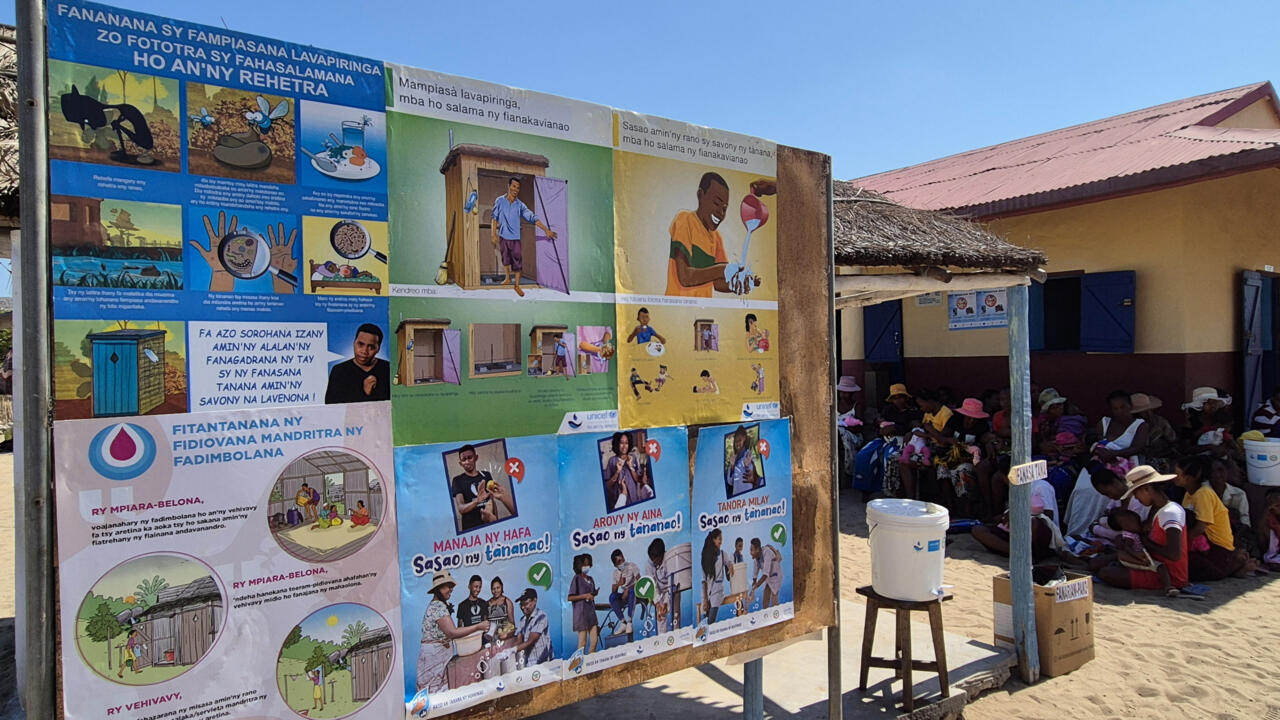In the coastal commune of Saint-Augustin, dozens of makeshift toilet blocks have sprung up near family homes, marking a significant shift in local practices. One such structure, shared between three households, serves 17 people.
“After using them, we must throw ashes in the hole to avoid odours. And when that’s done, we close it with the lid,” said Linah, a local mother, demonstrating the new routine. For her, this change means no more 15-minute walks to the river mouth. “We people here have always defecated in the open. It’s cultural. But they explained to us that it causes diseases when we do that. So two months ago, we decided to change. We pooled our money together. Who built this? We did!” she said.
This enthusiasm signals a fresh approach to tackling Madagascar’s sanitation crisis. The latest demographic and health survey, conducted in 2021, shows that just one-third of Madagascar’s population has access to basic sanitation facilities – but communities are increasingly taking matters into their own hands.Rather than providing ready-made solutions, a Unicef-funded programme launched in 2022 has put communities in charge of building their own facilities.
“Our approach is that we don’t want to build toilets for people. We don’t donate them either,” said Jean-Claude Vorimasy, director of awareness activities at the NGO Sahi in the Atsimo-Andrefana region. “We realised that if communities didn’t pay anything, they wouldn’t get involved and would quickly return to their old practices.” “Our technique is to convince them they have the capacity to change and build themselves. We explain how to dig the pit, construct the slab with local materials. And they do everything themselves,” he explained.
However, this is a challenge that extends far beyond Madagascar’s borders. Globally, one in three people lacks access to proper toilets and has to resort to open defecation – which not only promotes the spread of diarrhoeal diseases and infectious illnesses but also poses significant safety risks, particularly for women and girls. Madagascar has committed to eliminating open defecation by 2030. The success of community-led initiatives suggests that engaging local populations in both the construction and maintenance of sanitation facilities could be the key to achieving this ambitious goal.
Wow, it is hard to imagine that the health effects of open defecation are not that well understood in parts, still!
I have recently been involved in the development of sanitation options in developing countries, but am still surprised at how wide spread it is.
Anyone know of any communities that cover this sort of work?



